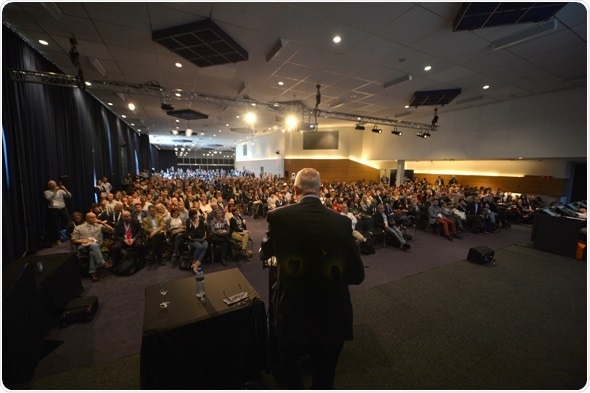Dec 9 2016
Experts at the European Committee on Antimicrobial Susceptibility Testing (EUCAST), who define the optimal drug concentrations to inhibit the growth of pathogens, have found that genetic methods cannot yet be used to test for susceptibility in a number of important bacterial species. Although there have been advances in whole genome sequencing (WGS), which allows to determine the DNA sequence of an organism’s genome at a single time, there are still several hurdles to overcome before this type of genetic testing can be used in clinical laboratories, they concluded.

A EUCAST subcommittee dedicated to reviewing the role of WGS in antimicrobial susceptibility testing (AST) considered the most recent published evidence on the use of whole genome sequencing as a tool for susceptibility testing. The group – comprising of over a dozen leading experts and led by Prof. Neil Woodford, Head of Public Health England's Antimicrobial Resistance and Healthcare Associated Infections Reference Unit – did not rule out that it will one day be possible for a single assay to predict how a species of bacteria will respond to a specific antimicrobial drug, but there is little evidence to suggest we will reach this point in the near future.
EUCAST’s technical data coordinator, Prof. Gunnar Kahlmeter of the Central Hospital, Växjö, Sweden, said that it is premature to suggest that breakpoints and recommendations for phenotypic susceptibility testing will no longer be required as genetic methods will supersede them any time soon. “To be of use in a clinical situation, WGS will need to predict antimicrobial resistance and also antimicrobial susceptibility, which are two quite different things. It will also be necessary for WGS to quantify the degree of resistance for an organism, something which is currently not possible.”
The group has chosen to compare how WGS can predict whether or not the organism belongs to the wild type (is without resistance mechanisms) with the same prediction performed through the use of the epidemiological cut-off values (ECOFFs) developed by EUCAST. Whether or not and in that case how this can be extended to clinical breakpoints is discussed in the paper.
The EUCAST subcommittee also highlighted that there is currently no way to assess how accurate different WGS laboratories are, and that there is an urgent need to establish a single public database of all known resistance genes within different bacterial species so that data can be shared and compared more easily.
The EUCAST experts also note that WGS technology is currently limited because it cannot be used to analyze specimens directly – bacteria can only be sequenced once they have been cultured. This inevitably leads to significant time delays and additional financial costs, which is usually prohibitive for most laboratories.
EUCAST recommends that whole-genome sequencing should be made a research and funding priority in the future to expand on our current knowledge and to develop more sophisticated prediction tools. As bacteria continue to develop multiple resistance mechanisms, unravelling the genetics of their interaction with antimicrobials will become even more challenging and even more necessary, particularly as we face the spectre of extreme drug resistance and global failure of some antimicrobials.